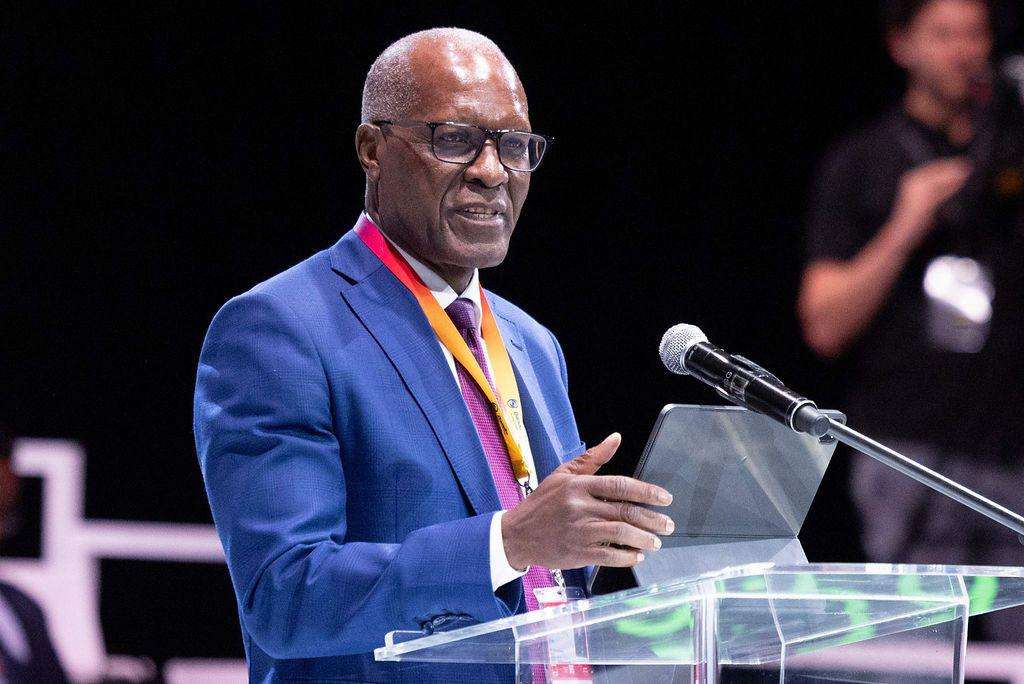Namibia’s oil and gas development ambitions remain on track despite Shell’s recent announcement that some discoveries in the offshore Petroleum Exploration License (PEL) 39 are not currently deemed commercially viable.
This was affirmed by Namibia’s Minister of Mines and Energy, Tom Alweendo, who expressed confidence in the country’s untapped offshore potential and ongoing exploration activities.
“The recent announcement by Shell… is unfortunate but it will not significantly impact Namibia’s oil and gas development,” Alweendo stated.
While Shell’s decision to write down $400 million due to technical and geological challenges in PEL39 has been viewed as a setback, the minister assured stakeholders that the country’s oil and gas story is still in its early stages.
Minister Alweendo pointed to the significant progress being made in other offshore blocks as evidence of Namibia’s potential.
For instance, TotalEnergies is advancing its multi-well appraisal and exploration drilling campaign in Block 2913B, located in PEL56. The block has shown promising results and remains a focal point for ongoing exploration activities.
Similarly, Portuguese oil company Galp is actively seeking a new partner for its Mopane complex after two successful discoveries in 2024 at Mopane-1X and Mopane-2A. These developments indicate that Namibia’s offshore resources are far from fully realized.
Adding to the momentum, Chevron, in collaboration with Namcor and Trago, has begun drilling the Kapana 1X well in PEL90. These initiatives by international oil majors underscore the industry’s commitment to unlocking Namibia’s vast offshore potential.
“We are positive that the remaining potential of PEL39 and other exploration campaigns currently underway will translate into commercial developments.”
Tom Alweendo, Namibia’s Minister of Mines and Energy
Minister Alweendo expressed optimism about the future, noting that exploration campaigns like TotalEnergies’ drilling in PEL56 and Chevron’s operations in PEL90 highlight the commitment of industry players to unlocking Namibia’s resources.
“We believe that we have barely begun to scratch the surface of the country’s offshore resources.
“We will continue working with dedicated companies to develop these resources.”
Tom Alweendo, Namibia’s Minister of Mines and Energy
Shell’s Decision: A Speed Bump, Not a Roadblock

Shell’s announcement that discoveries in PEL39 are not yet commercially viable has been met with measured responses from industry stakeholders.
The African Energy Chamber (AEC) considers the decision a temporary hurdle rather than a fundamental setback for Namibia’s oil and gas sector.
NJ Ayuk, Executive Chairman of the AEC, emphasized that exploration in Namibia’s offshore blocks is far from complete.
“There is no need for alarm. Exploration in these blocks is ongoing, and discoveries may need to be tied in with other finds within the basin.
“These blocks are massive, spanning up to 10,000 square kilometers—larger than some countries.”
NJ Ayuk, Executive Chairman of the AEC
Ayuk praised Namibia’s government for fostering a stable and attractive investment climate, making the country a premier destination for oil and gas exploration.
He added that Shell and other operators have only begun to scratch the surface of Namibia’s offshore resources.
Namibia’s Orange Basin, which hosts PEL39, is regarded as one of the most promising offshore oil exploration regions globally.
Recent discoveries by international oil majors have highlighted the basin’s significant potential. While not all discoveries immediately lead to commercial development, the basin’s vast size and untapped resources make it a hotspot for continued investment.
Namibia has also prioritized creating an enabling environment for energy investment.
The government’s pro-business policies and regulatory stability have attracted leading oil companies like Shell, TotalEnergies, Chevron, and Galp, all of which have committed significant resources to exploring Namibia’s offshore blocks.
“Namibia offers a stable climate that makes it a go-to destination for investors,” Ayuk noted.
Additionally, the country’s strategic location and proximity to global energy markets enhance its appeal.
As energy security remains a top priority worldwide, Namibia’s potential to deliver oil and gas production in the near future could significantly bolster its economic growth.
While Namibia remains committed to developing its oil and gas resources, the government has also pledged to uphold environmental sustainability.
Strict regulations and oversight are in place to ensure that exploration and production activities do not harm the country’s marine ecosystems.
International operators have been encouraged to adopt best practices and leverage advanced technologies to minimize their environmental footprint. Namibia’s balanced approach positions it as a responsible player in the global energy landscape.
READ ALSO: Addressing Rising Inflation Calls for Collaborative Action Across Ministries- Govt Statistician




















